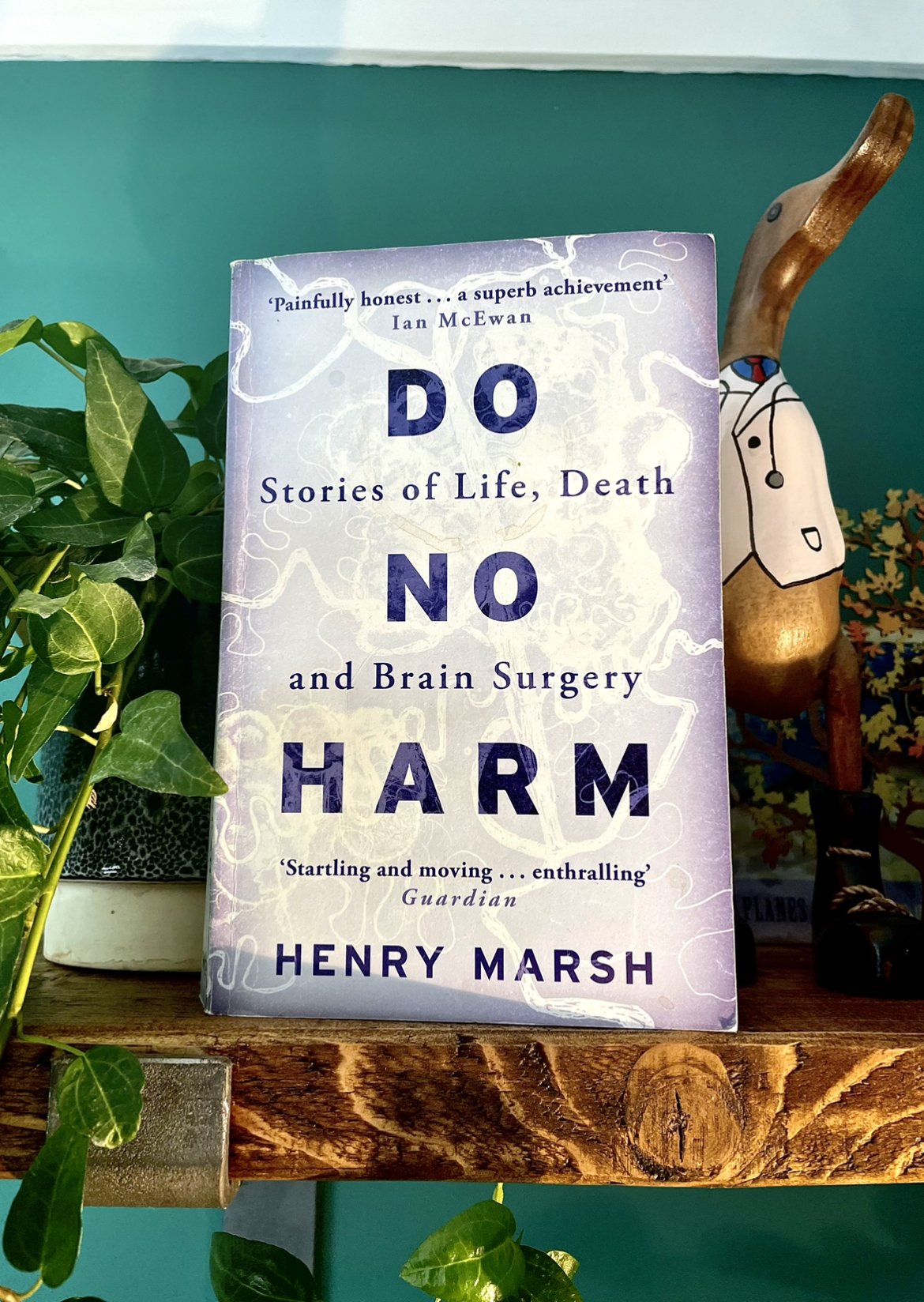Week 1: Medical Prep Review
Hello everyone,
I hope you have been having great week and are not too bogged down by medical school revision (or the weather)! This is my first weekly review where I summarise my favourite book and podcast of the week. This is aimed at medical school applicants and current medical school students. When reading a book, although some of you might hate me for it, I like to highlight some key quotes, write some key notes in a journal and re-read these before my interview. For a podcast, I often pull out my phone on the train or bus, and write down notes while listening to it. This way, I ensure I remember all the key details and can refer back to them at a later date.
Do No Harm: A book by Henry Marsh.
The book of the week: Do No Harm by Henry Marsh
If it isn’t abundantly clear by the image to the right, i’m neither an interior designer or photographer (luckily, these skills are not important for medicine!). However, I recommend ‘Do No Harm’ by Mr Henry Marsh if you are interested in neurosurgery.
“Knowing when not to operate is just as important as knowing how to operate, and is a more difficult skill to acquire”
Mr Marsh discusses the art of brain surgery in a chilling by captivating fashion, highlighting the skill, professionalism but also emotional strength that a neurosurgeon must possess. He details his trips to Ukraine where he performed and tutored life saving surgeries, his time on the NICE drug assessment board where they consider if a new treatment should be provided on the NHS, and surgeries he performed in such detail that your heart rate is matching his. To summarise this book would be to do it injustice. Out of all the medical books I’ve read, this one most thoroughly explains the emotional challenges that a surgeon faces:
“It is very hard to see a patient you have damaged, the surgeon is no longer a heroic person.”
Podcast of the week: “Apparently one of the students has already fainted..”
Sharp Scratch has to be my favourite medical-related podcast, and it is incredibly useful for interview preparation. Here, medical students, junior doctors and an expert guest discuss a matter outside the medical curriculum, e.g. fainting while in the operating theatre. Not only does it make for a very interesting listen, but it provides helpful knowledge for medical applicants and students. This episode details:
“Some of the reasons why we might feel faint, strategies we can use to prevent faints, and why their no shame in being a frequent fainter”.
Luckily, as someone who has gone a bit dizzy, once or twice before, this episode has given me techniques to ensure it doesn’t happen again, the understanding of the physiological processes behind it, and the confidence to realise it common.
Thats all for this week. If you have any comments, queries or questions please do not hesitate to get in touch: reubencordina@gmail.com or comment down below.
Enjoy your week!


